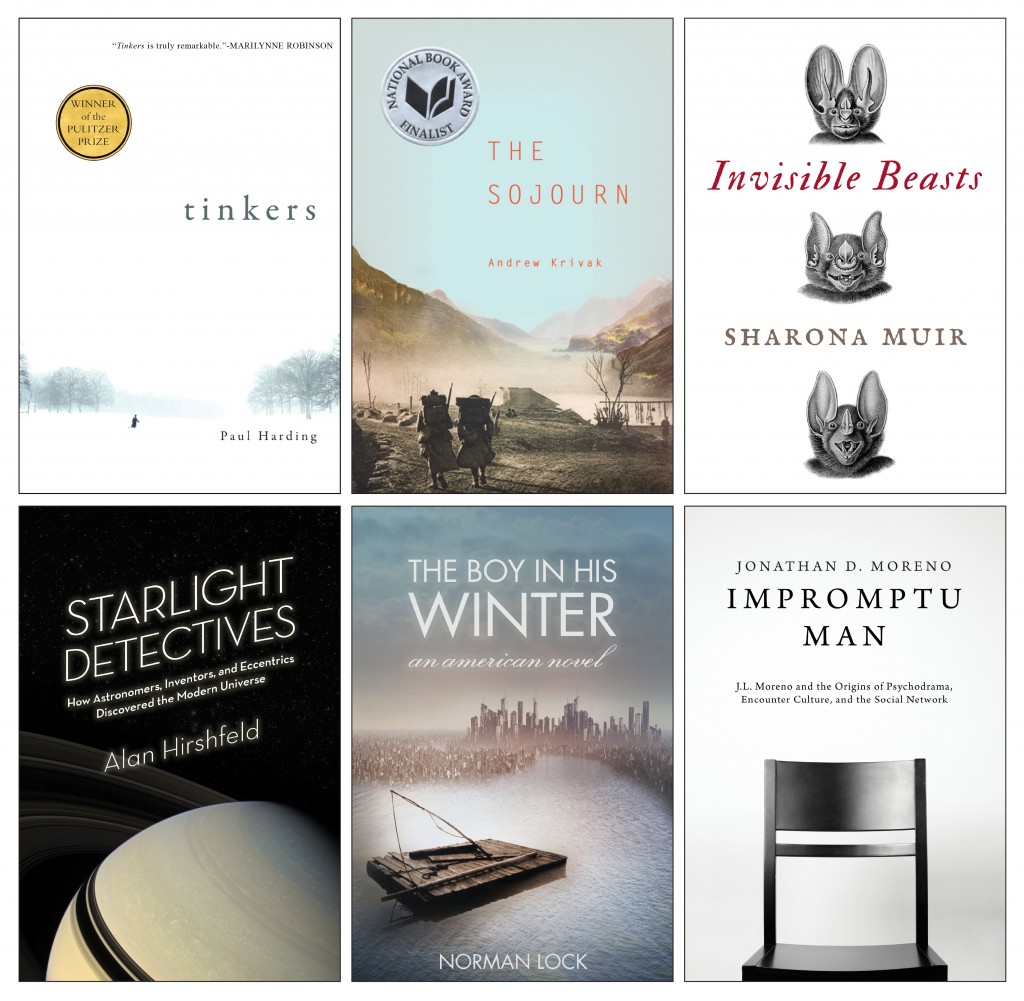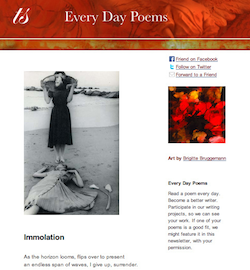Calling the opportunity to co-found Bellevue Literary Press “too great . . . to pass up, ” Erika Goldman became the small press’s publisher in 2005. Drawing on expertise acquired during her many years in mainstream publishing, she has signed award-winning authors who have brought recognition and respect to BLP and helped position it firmly within the medical community it serves: New York University School of Medicine. I recently interviewed Goldman via e-mail about the press, her responsibilities at BLP, and her aspirations.
______________________
What are the most compelling aspects of BLP’s origins?
I would say the exceptional belief that literature should have a home in a medical school, leading first to the founding of the Bellevue Literary Review, then our book press a few years later, by the chair of the NYU Department of Medicine at the time, Dr. Martin Blaser.
Dr. Jerome Lowenstein, co-founder of our press, is an exemplar of the values of humanistic medicine in his practice as a physician, an educator, and an author.
What is BLP’s association with “Bellevue Literary Review”?
We’re a sister organization, friendly and supportive of each other; but we are separate entities, each with our own editorial board.

Either a blank stare or a warm smile.
Needless to say, people in writing and publishing are more likely to have heard of us and be intrigued.
In addition to being publisher, you are editorial director, teach in NYU’s School of Medicine, and are on BLP’s board. What does a “routine” day at the press look like for you?
There is so much to do in an overextended, understaffed, and underfunded nonprofit, mission-driven small press that there’s no such thing as a “routine” day. Everyone on our small staff does a little bit (and often a lot) of everything. It’s exhausting but exciting.
What skills do you find most useful as BLP’s publisher?
I’m a manager, a fundraiser, and an ambassador for the press. I’m also an editor who engages directly with texts and authors. So [my answer is, ] as many skills as I can muster—professional as well as “life” skills.
Did you assemble your own editorial team? What characteristics do you look for when hiring for your team?
We’re a total of three in-house—with two of us acquiring—and work closely with two to three consultants, as well as other freelancers and reps. When the press was launched, I was the only employee. Leslie Hodgkins, who first came on as my assistant, has been with us through many ups and downs and has helped to formulate our vision and build our list.
As mentioned, BLP is a small press, a nonprofit, and a project of NYU’s School of Medicine. What do you consider to be the most challenging issues for this particular trade press, in contrast to small-press publishing generally?
I would say navigating among the several worlds that we simultaneously inhabit— as a non-funded university project, a distributed small press, and a proud member of the indie press community.
The background statement on BLP’s Website indicates that your books address the “big questions of the human condition while promoting literature and the humanities to the science and medical communities and science literacy to a general readership.” What are some of those “big questions, ” and how do you measure your success in achieving the stated objectives?
What we mean by this is that we’re a publisher of books of substance and ideas that challenge and engage the mind and heart.
I’d say that the critical accolades and awards that our books have received could be taken as a measure of our success.
What “big question” is in your sight that the press has yet to address?
Will we be able to make ourselves financially sustainable? That’s my greatest challenge.
How do you acquire your books? Given that BLP is a trade press, do your writers tend to stay with BLP?
We get submissions from agents and directly from authors, or through referrals from other publishers and writers.
Many of our writers have stayed with us, while others whom we’ve successfully launched have moved out into the wider mainstream of commercial publishing.
What are your personal favorites among the books that BLP has published?
I love them all! (I can no more answer that question than a mother could point out her favorite child!)
In what ways has technology affected BLP? Has BLP moved to e-books, for example; is it experimenting with new delivery modes generally or is it dedicated to print for the long haul?
Along with everyone else in the business, we’re trying to keep abreast of the new technologies. We publish all of our books simultaneously in print and electronic form.
I’m personally committed to print, and the business hasn’t yet fully moved away from it, either. For me, no e-reader can replace the feel of a “real” book in my hands. But I have nothing against people who find e-books more convenient.
BLP authors include a Pulitzer Prize winner and a National Book Award finalist, as well as recipients of numerous other literary awards. How does this kind of recognition affect (if at all) the business side, such as selling and fundraising?
The awards have put us on the map, and so booksellers and reviewers are more likely to pay attention to what we’re doing. But selling books is a slog, no matter who you are, and each book follows its own path. That’s true for the large commercial houses as well. And fundraising is just as tough as ever!
You are quoted in a “New York Times” article as saying that BLP harbors no illusions “about making a fortune. We’re in it for love and art.” What do you say to those who maintain that no one can run a business on love and art?
I would say that they’re not wrong. A Pulitzer Prize is not a business plan. That’s why I have to spend so much time and energy fundraising. But at least I’m devoting my time to something that I’m proud of and passionate about. For as long as it lasts, I’ll have been very lucky.
What are your aspirations for the press?
That we can one day become sustainable. (Calling down the Angels here!)
If you could tell only one anecdote about your experience as BLP’s publisher or editorial director, what would that story be?
I can’t do better than the story of our Pulitzer Prize, which is too long to tell here, because it goes from the moment Paul Harding’s manuscript [for Tinkers] first came into my hands to today.
Photo by Spencer Graham, Creative Commons license via Flickr. Post by Maureen Doallas, author of Neruda’s Memoirs: Poems.
__________________________________________
Follow Bellevue Literary Press on Facebook, Twitter, Goodreads.
Read more:
New York University Literature, Arts, and Medicine Database
The Little Publisher That Could: Department of Medicine’s Bellevue Literary Press Garners Pulitzer Prize for Fiction, News & Views, The NYU Langone Medical Center Community, May/June 2010
Start your day with poetry.
Buy a year of Every Day Poems, just $5.99
- Persecuted Poets: Hearing the Voices Beyond Our Borders - November 30, 2016
- Writing with Matisse in Mind - October 26, 2016
- Healing with Poetry: Interview with Fred Foote (Part 3) - September 10, 2015


Donna says
Every time I hear that a press publishes e-books, but is not planning on leaving real “live” paper in the dust I smile. Sometimes e-books can be more practical, and for me there was a time when the only way I could read a book was on a tiny iPod screen, BUT, I love that I can read the paper kind now! And I love knowing that I may run out of daylight, but the battery life of a book never expires! 🙂
Maureen Doallas says
I like that BLP sees that publishing can take an “and and” and not an “either or” approach.
Just as we all have individual learning styles, so we also have individual reading preferences; my own tend toward paper, partly because I collect artists’ books and fine press books. I recognize, however, that paper takes trees and we don’t replace nearly enough what we take to consume in another form. If I had to read only online, I would, but I’d miss holding the object in hand.